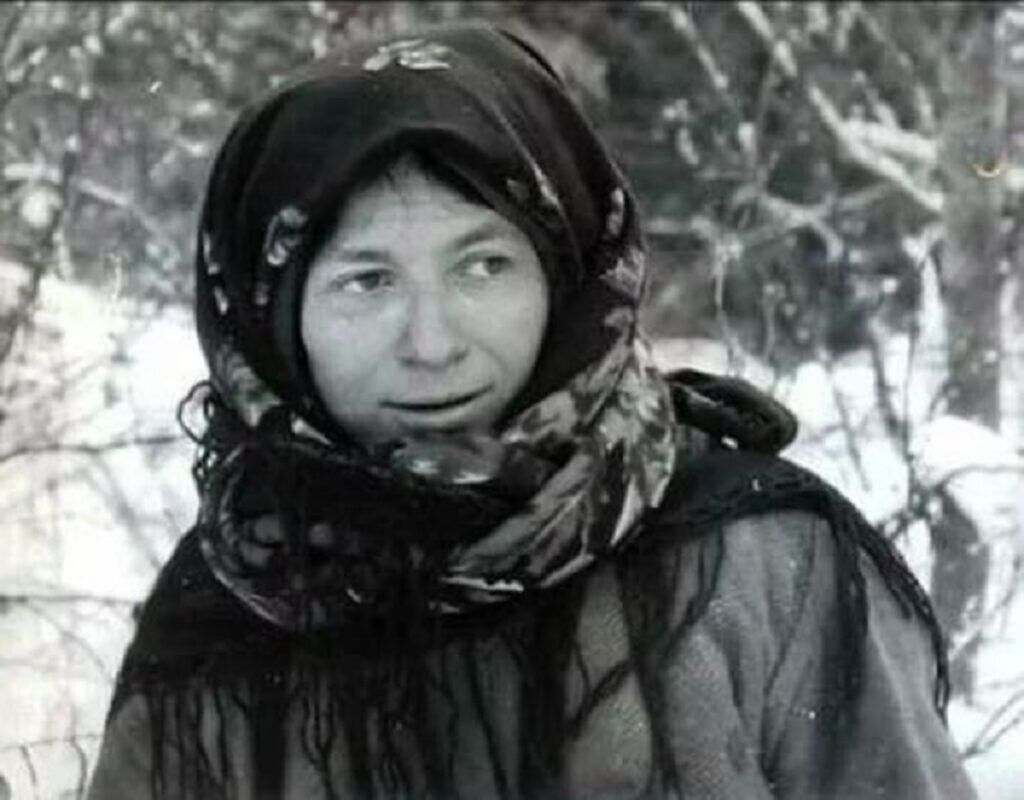In today’s hyper-connected world, where social media and instant communication dominate our lives, the extraordinary survival story of a Russian family living in complete isolation for four decades stands out as a testament to human resilience and adaptability. Their journey from seclusion to the modern world offers profound insights into the essence of survival and the bonds that keep a family together against all odds.
The Lykov Family: Embracing Isolation

Deep within the expansive and unforgiving Siberian wilderness, the Lykov family carved out a life far removed from society’s hustle and bustle. Their story began in the mid-1930s when Karp Lykov, driven by the need to escape persecution after his brother was killed by Soviet authorities, fled with his wife, Akulina, and their two young children, Savin and Natalia. Seeking refuge in the dense forests of Siberia, they embarked on a journey that would isolate them from the rest of the world for nearly 40 years.
A Life of Self-Reliance and Simplicity
Living in the remote taiga, the Lykovs developed a way of life that relied entirely on self-sufficiency. They fashioned their own clothing from materials like hemp and tree bark, hunted local wildlife for sustenance, and cultivated a diet that often teetered on the brink of scarcity. Their days were simple yet demanding, filled with hunting, gathering, and maintaining their modest homestead. The family’s only constant companion was an old Bible, which provided not only spiritual guidance but also a sense of normalcy and connection to a world they had left behind.
Remarkably, the Lykov children, including Dmitry and Agafia who were born in the wilderness, grew up with no awareness of major global events such as World War II. Their education was limited to survival skills and the teachings of their parents, creating a unique upbringing far removed from modern society.
Discovery and the End of an Era

After four decades of isolation, the Lykov family’s secluded existence came to an abrupt end in the early 1970s when a team of Soviet geologists stumbled upon their hidden homestead. This unexpected encounter thrust the family into the global spotlight, marking their first contact with the outside world. However, the sudden intrusion proved too much for the isolated family. Within a few years of their discovery, most members of the Lykov family passed away, leaving only the youngest daughter, Agafia, to continue living in the taiga.
Agafia Lykov’s continued residence in the forest serves as a living link to her family’s remarkable story. Now in her twilight years, she maintains a more comfortable shelter but remains deeply connected to the wilderness that has been her home for most of her life.
The Lasting Legacy of the Lykovs
Agafia’s perseverance and ability to adapt to changing circumstances highlight the incredible strength of the human spirit. Her life in the Siberian wilderness is not just a story of survival but also a reflection on the profound connection between humans and nature. Experts from the Institute of Remote Living Studies have praised the Lykovs for their exceptional adaptability and resourcefulness. Dr. Elena Morozova, a renowned psychologist specializing in survival behavior, states, “The Lykov family exemplifies extraordinary resilience. Their ability to thrive in such extreme isolation while maintaining their faith and traditions is truly remarkable.”
Lessons from Isolation: Reflection on Modern Life
The Lykov family’s experience offers valuable lessons for our modern, technology-driven society. In a world where connectivity is often taken for granted, their story prompts us to reconsider what truly matters for survival and well-being. It underscores the importance of simplicity, self-sufficiency, and the human capacity to endure hardship.
As environmental concerns and the quest for sustainable living become increasingly pressing, the Lykovs’ way of life provides a blueprint for resilience and harmony with nature. Organizations like the World Wildlife Fund (WWF) advocate for the preservation of traditional survival skills and sustainable practices, recognizing their relevance in today’s context.
Conclusion
The incredible survival story of the Lykov family, who lived in total isolation for 40 years, serves as a powerful reminder of the human ability to adapt and thrive in the most challenging environments. Their life in the Siberian wilderness not only highlights the depths of human resilience but also invites us to reflect on our own lives and the values we hold dear. In an era dominated by technology and connectivity, the Lykovs’ journey stands as an inspiring testament to the enduring strength of family bonds and the fundamental aspects of human survival.






